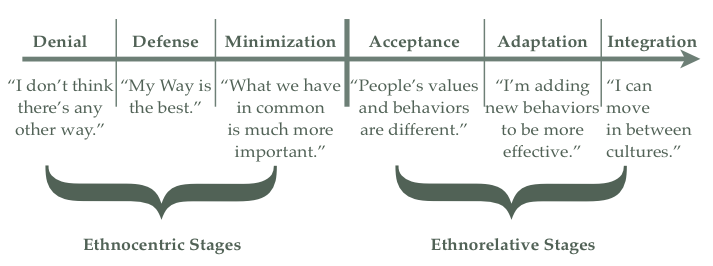The Ideal of the Common: The Importance of Perspective and Diversity in Students’ Intellectual Development
Monday, March, 20th, 2017
By Allison Guenthner, Graduate Assistant and Annie Soisson, Associate Director, CELT
In this year’s spring teaching conference keynote address, Dr. L. Lee Knefelkamp, BTtoP Senior Scholar and Professor Emerita of Psychology and Education, Teachers College, Columbia University, focused her remarks on intellectual development and perspective taking in the face of intractable conflicts. Knefelkamp highlighted the importance of encouraging student engagement with diversity and described how teachers can simultaneously cultivate thoughtful disagreement and intellectual growth. Reflecting on her recent visit to the Boston Common, she used the analogy of the college campus as the new global common. “It is the most diverse place in our society…the place for encounters with diversity and where people can learn to resolve conflict in appropriate ways. We are a space anchored in the resolution to continue to engage in the face of differences.”
Confronting complex, controversial issues is essential to education
Knefelkamp discussed a predicament pervasive in the increasingly diverse landscape of higher education. While many students see the value in diversity, they do not necessarily actively engage with diversity. There is a substantial difference between being surrounded by diversity and voluntarily engaging and participating in such rich differences. All too often, she said, students … fail to view differences as a vital resource in developing themselves, their community, and our larger society.
Knefelkamp asserted that in order to begin the process of valuing diversity, students, faculty, and administrators alike need to be able to listen to each other in the hopes of developing deep understanding, as opposed to developing mere knowledge or subject expertise. Knefelkamp proposes that the conversations that produce the deepest understanding and personal growth are often the most challenging, uneasy conversations, and ones we avoid. Often, these meaningful discussions center on what Knefelkamp calls intractable conflicts, that is, lingering disagreement that appears at deadlock and that cannot be deescalated or mediated. In short, these conversations seem irreconcilable, and impossible to approach. While many would flee from such bellicose dialogues, Knefelkamp implores members of higher institutions to remain in and even encourage these very conversations.
Modeling and skill building for perspective taking and dialogue across difference is a faculty role
If many of our societal and educational leaders are unable to conduct respectful conflict-resolution, how can we expect students to manage difficult dialogues and foster deeper interpersonal or intergroup understanding? In response to this question, Knefelkamp asserted that it is the responsibility of faculty to model and encourage effective dialogue, and support students to explore and understand perspectives that differ from their own. Despite the tension and awkwardness, difficult conversations between diverse individuals have the potential to generate lasting learning, understanding and transformation. As teachers, we must also work to create classroom environments where students feel comfortable enough and skilled enough to share their ideas without fear of backlash or indoctrination.
Cross Cultural understanding is a developmental process
Knefelkamp referenced Dr. Milton Bennett’s Developmental Model of Intercultural Sensitivity as one to keep in mind as we help guide students to think in more complex, nuanced ways about the world and their place in it. Linked below is a more complete description of the stages of development that also imply what our role is as faculty in structuring learning opportunities.
Dr. Milton Bennett’s Developmental Model of Intercultural Sensitivity
Diversity IS the college experience
As campus leaders, Knefelkamp states, it is our duty to create an environment where students can embrace diversity and cross cultural understanding for what it offers to their learning and personal development. After all, diversity is the college experience, she said. And if we are to foster the most positive, intellectually developing, and transformative experience for our students, then it is necessary that we organize systems to maximize perspective taking and engagement with differences. This is the premise of inclusive excellence. Without a myriad of voices not only represented, but encouraged to be heard on our campuses, Knefelkamp declared, “we can never be inclusive, nor can we be excellent.”
For full Keynote Address, click here: https://www.youtube.com/watch?v=qc7TxcP1g0c
For a short summary of Bennett’s model, click here: http://www.idrinstitute.org/page.asp?menu1=15
For a teacher’s guide for moving students through the stages of the model, click here: http://www.idrinstitute.org/allegati/IDRI_t_Pubblicazioni/47/FILE_Documento_Bennett_DMIS_12pp_quotes_rev_2011.pdf
Read this interesting article on Perspective Taking: https://www.aacu.org/publications-research/periodicals/encouraging-perspective-taking-among-college-students
Dr. Knefelkamp was a keynote speaker at the May 23 and 24, 2016 teaching conference, co-sponsored by the Tufts Center for the Enhancement of Learning and Teaching, Educational Technology Services and the New England Faculty Development Consortium. The conference was supported in part through a grant from The Davis Educational Foundation. Over 150 faculty members from across Tufts campuses and 140 faculty and administrators from over 30 colleges and universities across New England gathered for this conference titled Inclusive Excellence: Teaching and Learning in an Increasingly Interconnected World.
